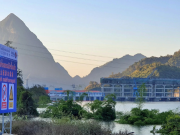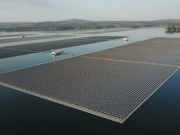Singapore , November 04, 2023
Singapore and Malaysia have reached a landmark agreement to renew their historic water supply pact, introducing revised pricing and enhanced sustainability provisions. The deal, signed between Singapore’s Public Utilities Board (PUB) and Johor’s state water authority, marks a significant reset in one of the region’s most sensitive bilateral relationships.
The original agreement, which dates back to 1962, has long been a point of contention—especially regarding pricing and perceived inequities. Under the new terms, water prices will be adjusted to reflect current economic realities and the rising cost of infrastructure. Crucially, the updated pact includes new investments in water recycling, digital monitoring, and joint conservation programs.
Singapore’s Minister for Sustainability and the Environment, Grace Fu, emphasized mutual benefit. “This renewal reflects a mature and forward-looking partnership with Johor, built on trust, resilience, and a shared vision for sustainable water management.”
Johor Chief Minister Onn Hafiz Ghazi added that the agreement would provide financial stability for the state’s water infrastructure and ensure supply continuity for both regions.
Environmental experts are praising the inclusion of sustainability clauses. For the first time, both parties have agreed to co-invest in water reclamation technologies and shared early-warning systems to address drought or pollution threats. There are also commitments to reduce water loss through improved pipeline maintenance and leak detection.
While the revised agreement doesn’t eliminate all political sensitivities, analysts say it is a pragmatic move that strengthens Malaysia-Singapore ties. “This is not just about water anymore,” said Dr. Bridget Lee, a Southeast Asia geopolitics expert at NUS. “It’s a signal that the two neighbors are willing to collaborate on critical resources in a time of regional climate stress.”
The pact will be reviewed every five years, ensuring flexibility in the face of evolving environmental and economic conditions.















